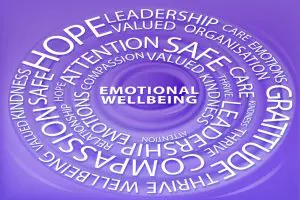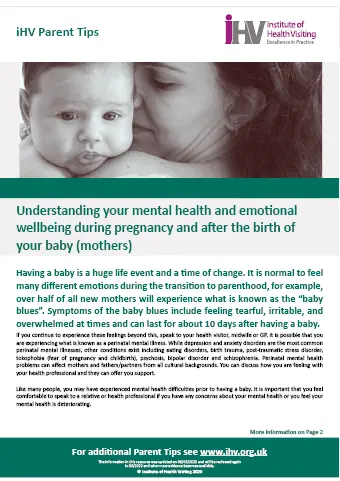We are delighted to be able to offer organisations the opportunity to develop Emotional Wellbeing at Work Champions – funded places.
This is an amazing chance, only available to a small number of organisations due to the limited number of places on offer – limited to 2 places per organisation.

Emotional Wellbeing at Work
We are thrilled to share that the COVID Healthcare Support Appeal (CHSA), a subsidiary of the RCN Foundation, has awarded funding to enable us to develop and deliver a programme creating 24 Emotional Wellbeing at Work (EWW) Champions in health visiting teams across the UK. Champions will be trained to deliver our evidence-based programme of emotional wellbeing at work to groups of health visitors (HVs) and HV staff working within their own organisations.
The aim is that the EWW Champions will provide a cascade of emotional support groups within their teams as part of the development programme, with ongoing support and supervision provided by our team during this period.
Recent research has highlighted the impact of COVID-19 on the wellbeing and mental health of health visiting staff (Conti & Dow 2020):
- 68% of respondents reported an increase in stress levels at work over the past year
- Of these 37% reported they would leave their posts if they could
What is the timescale and commitment for the EWW Champions programme?
- June – November 2021 – EWW Champions attend a total of 7 experiential learning group sessions, whereby they experience the support they are being trained to offer. The sessions will include a planning session to allow them to set up their own cascade of group sessions with their EWW Champion partner from their organisation.
- November 2021 – March 2022 – EWW Champions commence offering the series of 6 EWW support group sessions to their colleagues. One-to-one support from the our EWW Facilitators is available to the end of the programme in March 2022.
- January – March 2022 – EWW Champions attend monthly group supervision sessions with our EWW Facilitators to share successes with their cohort and problem-solve / seek support to issues. This supports their continued development as group facilitators as well as providing essential supervision support for them as part of the process.
- In total 10 sessions are attended in the period of the programme (June 2021 to March 2022), and there is an expectation that the Champion will go on to deliver 6 group sessions to their colleagues from November 2021 onwards.
How many people will attend each session?
- The number of champions in each group will be capped at 12 to ensure that the sessions are safely managed for all. Groups are closed which means that the same participants and facilitators will be at each session.
How will delegates attend the programme sessions?
- The sessions are offered via Zoom platform – this has worked really well as part of a wider programme delivered for the RCN Foundation by the iHV last year.
- Delegates will need a laptop with a working webcam and microphone to attend. They will also need access to a private space to protect confidentiality of the groups.
- Delegates will also need their manager’s support for their attendance at all 10 sessions (between June 2021 and March 2022) and also support for delegates to roll out similar wellbeing sessions x 6 to their colleagues between December to February as part of the programme.
How to find out more or book places for your organisation?
Interested in developing Emotional Wellbeing at Work Champions within your organisation? Please email [email protected] to find out more or to book your organisation’s places.



